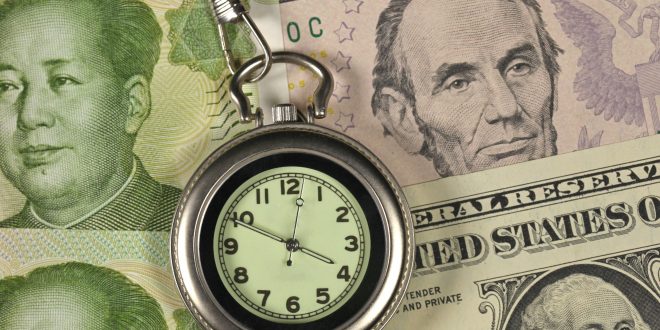The second week of November saw two major highlights. First, it was over the past weekend that it became clear that the Democratic nominee and Former Vice President Joe Bides will be the next President of the United States after winning the elections.
A projected win in the state of Pennsylvania meant that Biden has passed the 273 electoral votes mark, however, the incumbent President Donald Trump has so far refused to concede and is challenging the results of the elections. However, it seems that this is not causing much of uncertainty, and a smooth transition of power is expected to take place come January 20, 2021.
Secondly, it was at the beginning of the week, on Monday, that Pfizer and BioNTech announced a breakthrough in the results of their vaccine against the Coronavirus disease (COVID-19), which caused a global pandemic. A 90% success rate and little to no harmful effects means the vaccine could be key in combating the deadly virus.
Gold
The yellow metal was negatively affected by the vaccine news, after achieving high gains on the back of the pandemic uncertainty. After falling by around 5% on Monday, gold futures were able to limit their weekly decline to around 3%.
Oil
On the contrary, crude prices were among the winners from the vaccine news, with an improved outlook for demand recovery. Brent futures closed the week higher by more than 8%, despite a surprise increase in US crude inventories.
Asia
Japan Nikkei index rose 65.75 points to 24905.59 last week, continuing to the upside, gaining 2.12%, as it rose for the sixth consecutive session to levels not seen in nearly 3 decades.
In China, data released by the Chinese National Bureau of Statistics revealed that the annual inflation rate in China decreased to 0.5% in October, compared to 1.7% the previous month. This reading came lower than market expectations of 0.8%, the lowest since October 2009.
On a monthly basis, consumer prices fell 0.3%, the first drop in 4 months, missing expectations of 0.2% after a 0.2% rise in September.
Chinese stocks also welcomed Joe Biden’s victory in the US presidential election, expecting a more diplomatic policy with China and other Asian countries. Chinese stocks closed the week near two-month highs, the Shanghai Composite gained 61.57 points to 337373, after rising 2.22% the previous week.
Europe
Economic data in the Eurozone showed that German investor sentiment fell more-than-expected in November.
The German ZEW headline numbers for November showed that the Economic Sentiment Index came in at 39.0 versus 41.7 expectations and 56.1 last.
While the sub-index Current Conditions figure arrived at -64.3 in Nov versus -65.0 expected and -59.5 last.
Eurostat data also revealed 12.60% growth in the bloc’s economy in the three months to September 2020.
On the other hand, the International Monetary Fund said Friday that Spain’s economic downturn may be less severe this year than the previously expected 12.80%, due to the strong recovery in Q3. The Spanish government has said it expects gross domestic product to fall by 11.2% this year and recover by at least 7.2% next year.
European Parliament and the European Union governments have reached a deal on the EU’s 2021-2027 budget
Commenting on this development, “a deal for Europe – Council and European Parliament negotiators reach a political agreement on the EU budget & recovery package,” the spokesman for the German presidency of the EU tweeted out previous week.
US
The Dow Jones Industrial Average registered a weekly rise of 4.1%, and the S&P 500 added 2.2% as it closed the week at a new record.
The Russell 2000 also ended the week at a new all-time record, after surging by more than 2% on Friday.
Meanwhile, the Nasdaq Composite recorded a 0.6% weekly decline.
 Noor Trends News, Technical Analysis, Educational Tools and Recommendations
Noor Trends News, Technical Analysis, Educational Tools and Recommendations





